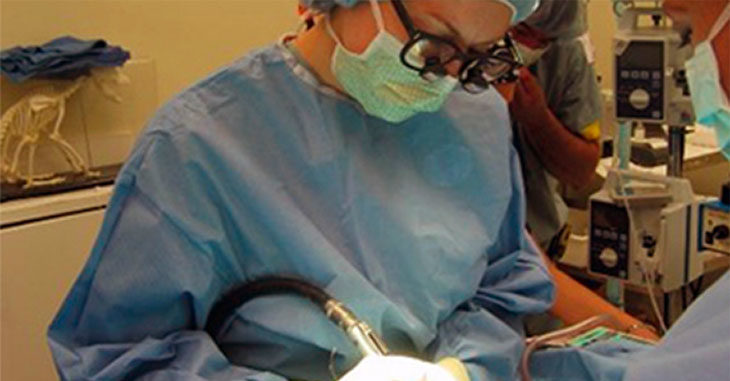What is the difference between a veterinary neurologist and a veterinary neurosurgeon? Can someone be both? Just like in human medicine, veterinary medicine has specialists who focus on specific fields of treatment. There are veterinarians who primarily perform surgery and some who only see cancer patients.
While there are often parallels between what a specialist does in both human and veterinary medicine, sometimes the two can be very different. For example, an anesthesiologist’s job is similar in human and veterinary medicine. But, the difference between how a human neurologist and veterinary neurologist practice medicine can be more pronounced.
For most neurologic cases in human medicine, neurologists do not perform surgery and neurosurgeons do not practice medicine. That can be different in veterinary medicine. Most neuro residency programs for veterinarians provide both medical and surgical experience as well as the expertise to handle all aspects of neurologic disease.
A veterinary neurologist and neurosurgeon works directly with clients, pets, and family veterinarians through nearly all steps of a disease process. Once a family veterinarian has referred a patient to a veterinary neurologist, a neuro exam is performed to localize the problem to a specific area of the nervous system. Then, advanced diagnostics such as magnetic resonance imaging (MRI), computed tomography (CT), and cerebrospinal fluid analysis (spinal tap) can be performed in order to focus in on a diagnosis. Based on the test results, the neurologist will prescribe therapy in the form of medicine or surgery, and work with pet owners on postoperative care.
Once you have identified a neurologic abnormality in your patient or your pet, contact board-certified veterinary neurologist Dr. Jill Narak at Veterinary Referral Surgical Practice (VRSP) in Roswell, Ga. She works closely with VRSP orthopedic surgeons and physical therapists in order to develop the best treatment plan for your patients. You can rest assured that Dr. Narak will work in partnership with you and your client on the diagnosis and management of your patient’s condition.

